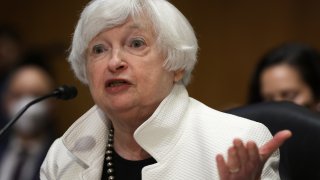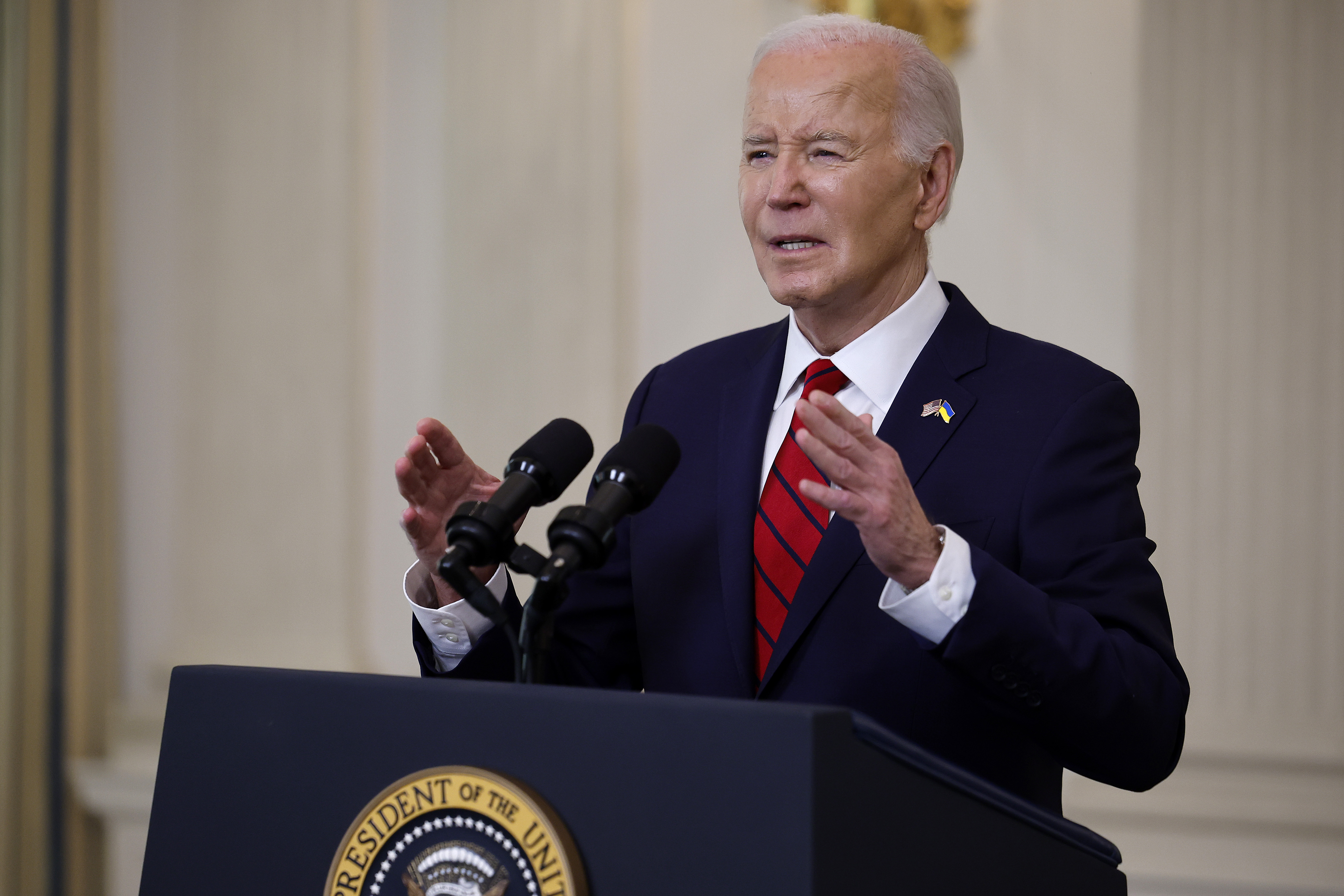
Treasury Secretary Janet Yellen notified Congress on Friday that the U.S. is projected to reach its debt limit on Thursday and will then resort to “extraordinary measures” to avoid default.
In a letter to House and Senate leaders, Yellen said her actions will buy time until Congress can pass legislation that will either raise the nation's $31.4 trillion borrowing authority or suspend it again for a period of time.
Those measures include divesting some payments, such as contributions to federal employees’ retirement plans, in order to provide some headroom to make other payments that are deemed essential, including those for Social Security and debt instruments.
“Failure to meet the government’s obligations would cause irreparable harm to the U.S. economy, the livelihoods of all Americans, and global financial stability,” she said. “Indeed, in the past, even threats that the U.S. government might fail to meet its obligations have caused real harms, including the only credit rating downgrade in the history of our nation in 2011.” Yellen was referring to the debt ceiling impasse during Barack Obama's presidency, when Republicans had also just won a House majority.
We're making it easier for you to find stories that matter with our new newsletter — The 4Front. Sign up here and get news that is important for you to your inbox.
In this new Congress, the debt ceiling debate will almost certainly trigger a political showdown between newly empowered GOP lawmakers who now control the House and want to cut spending and President Joe Biden and Democrats, who had enjoyed one-party control of Washington for the past two years.
Politics
Political news from the U.S. Capitol, White House and around Washington, D.C., Maryland and Virginia
The White House has insisted that it won’t allow the nation’s credit to be held captive to the demands of GOP lawmakers.
“We have seen both Republicans and Democrats come together to deal with this issue," White House spokesperson Karine Jean-Pierre told reporters Friday. “It is one of the basic items that Congress has to deal with and it should be done without conditions.”
House Republican leaders liken the debt ceiling to a credit card limit and have said they would only raise the statutory ceiling if doing so also secures a spending overhaul. In an interview this week on Fox News Channel, new House Speaker Kevin McCarthy stopped short of saying House Republicans would go so far as to refuse to pass the annual spending bills needed to fund the government, as happened more than a decade ago during an earlier debt ceiling showdown in Congress.
“We’re going to look at every single dollar spent,” he said.
But any effort to compromise with House Republicans could force Biden to bend on his own priorities, whether that’s money for the IRS to ensure that wealthier Americans pay what they owe or domestic programs for children and the poor.
Yellen said that while Treasury can’t estimate how long the extraordinary measures will allow the U.S. to continue to pay the government’s obligations, “it is unlikely that cash and extraordinary measures will be exhausted before early June.”
Shai Akabas, director of economic policy at the Bipartisan Policy Center, told reporters Friday that “this is not the time for panic, but it's certainly a time for policymakers to begin negotiations in earnest.”
“Most policymakers agree that we have a major fiscal challenge as a country, our debt is unsustainable," he said, and "there’s no reason why we couldn’t agree on measures to improve our fiscal outcome, and also ensure that we are paying all of our bills in full and on time.”
Treasury first used extraordinary measures in 1985 and has used them at least 16 times since, according to the Committee for a Responsible Federal Budget, a fiscal watchdog. But the extraordinary measures only work for so long, and would probably run out — and put the U.S. at risk of default.
Those measures include divesting some payments, such as contributions to federal employees’ retirement plans, in order to provide some headroom to make other payments that are deemed essential, including those for Social Security and debt instrument
Past forecasts suggest a default could instantly bury the country in a deep recession, right at a moment of slowing global growth as the U.S. and much of the world face high inflation because of the pandemic and Russia’s invasion of Ukraine. The financial markets could crash and several million workers could be laid off.
The aftershocks could be felt for years. Moody’s Analytics called this risk “cataclysmic” in a 2021 forecast before the previous debt ceiling increase, suggesting that the resulting chaos would be due to government dysfunction, rather than the underlying condition of the U.S. economy.



